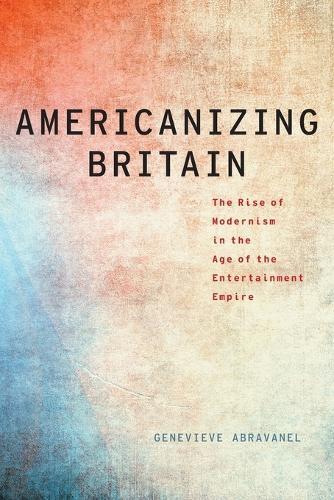Overview
How did Great Britain, which entered the twentieth century as a dominant empire, reinvent itself in reaction to its fears and fantasies about the United States? Investigating the anxieties caused by the invasion of American culture-from jazz to Ford motorcars to Hollywood films-during the first half of the twentieth century, Genevieve Abravanel theorizes the rise of the American Entertainment Empire as a new style of imperialism that threatened Britain's own. In the early twentieth century, the United States excited a range of utopian and dystopian energies in Britain. Authors who might ordinarily seem to have little in common-H.G. Wells, Aldous Huxley, and Virginia Woolf-began to imagine Britain's future through America. Abravanel explores how these novelists fashioned transatlantic fictions as a response to the encroaching presence of Uncle Sam. She then turns her attention to the arrival of jazz after World War I, showing how a range of writers, from Elizabeth Bowen to W.H. Auden, deployed the new music as a metaphor for the modernization of England. The global phenomenon of Hollywood film proved even more menacing than the jazz craze, prompting nostalgia for English folk culture and a lament for Britain's literary heritage. Abravanel then refracts British debates about America through the writing of two key cultural critics: F.R. Leavis and T.S. Eliot. In so doing, she demonstrates the interdependencies of some of the most cherished categories of literary study-language, nation, and artistic value-by situating the high-low debates within a transatlantic framework.
Full Product Details
Author: Genevieve Abravanel (Associate Professor of English, Associate Professor of English, Franklin & Marshall College)
Publisher: Oxford University Press Inc
Imprint: Oxford University Press Inc
Dimensions:
Width: 23.10cm
, Height: 1.50cm
, Length: 15.70cm
Weight: 0.318kg
ISBN: 9780190272418
ISBN 10: 0190272414
Pages: 224
Publication Date: 12 May 2016
Audience:
College/higher education
,
Professional and scholarly
,
Undergraduate
,
Postgraduate, Research & Scholarly
Format: Paperback
Publisher's Status: Active
Availability: To order

Stock availability from the supplier is unknown. We will order it for you and ship this item to you once it is received by us.
Reviews
[A] compelling case for the role Americanization played in Great Britain's sense of national self...Abravanel's lucidly written, closely argued text will be an invaluable resource...Highly recommended. Choice In this absorbing and clear-eyed study, Genevieve Abravanel shows us how key works of British modernism warded off an 'American Age' whose image they fixed by opposing. Reactivating the links between Leavis and the New Critics, she also reads present-day features of the U.S. and U.K. literary academies as enduring symptoms of the modernist moment. Americanizing Britain achieves something that few scholarly studies do: it alters the story of its own institutional preconditions, making Anglophone literary studies strange to itself. Paul K. Saint-Amour, author of The Copywrights It is a commonplace of twentieth-century history that Britain has been conquered and colonized by American mass culture. But in this thoughtful and nuanced contribution to our understanding of the phenomenon, Genevieve Abravanel persuasively demonstrates how a distinctive British form of literary modernism developed to counter the perceived effects of Americanization and in the process re-imagined Englishness. Jeffrey Richards, author of Films and British National Identity Essential, solid, and penetrating...possesses that great virtue of having successfully navigated a maelstrom of eddies and crosscurrents in an exciting and emerging subfield within British literary modernism. Clio: A Journal of Literature, History and the Philosophy of History
Author Information
Genevieve Abravanel is Associate Professor of English at Franklin & Marshall College.




